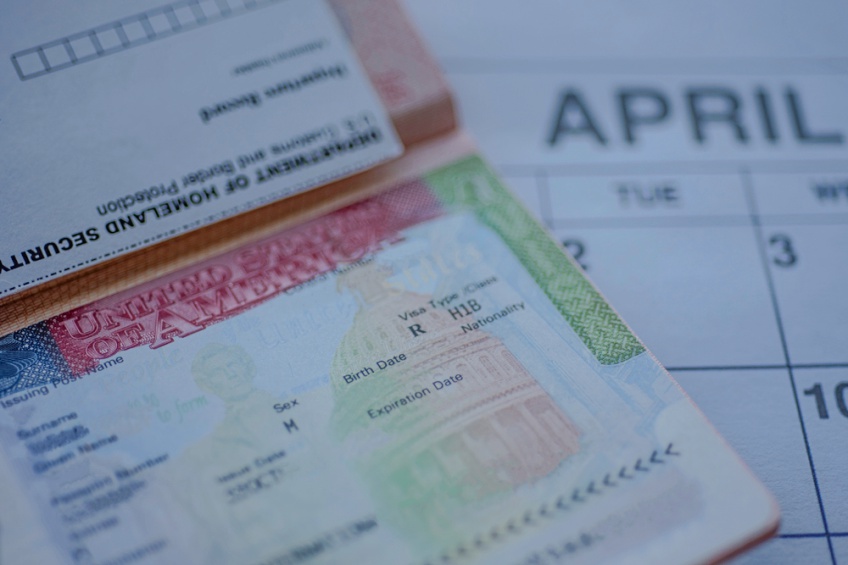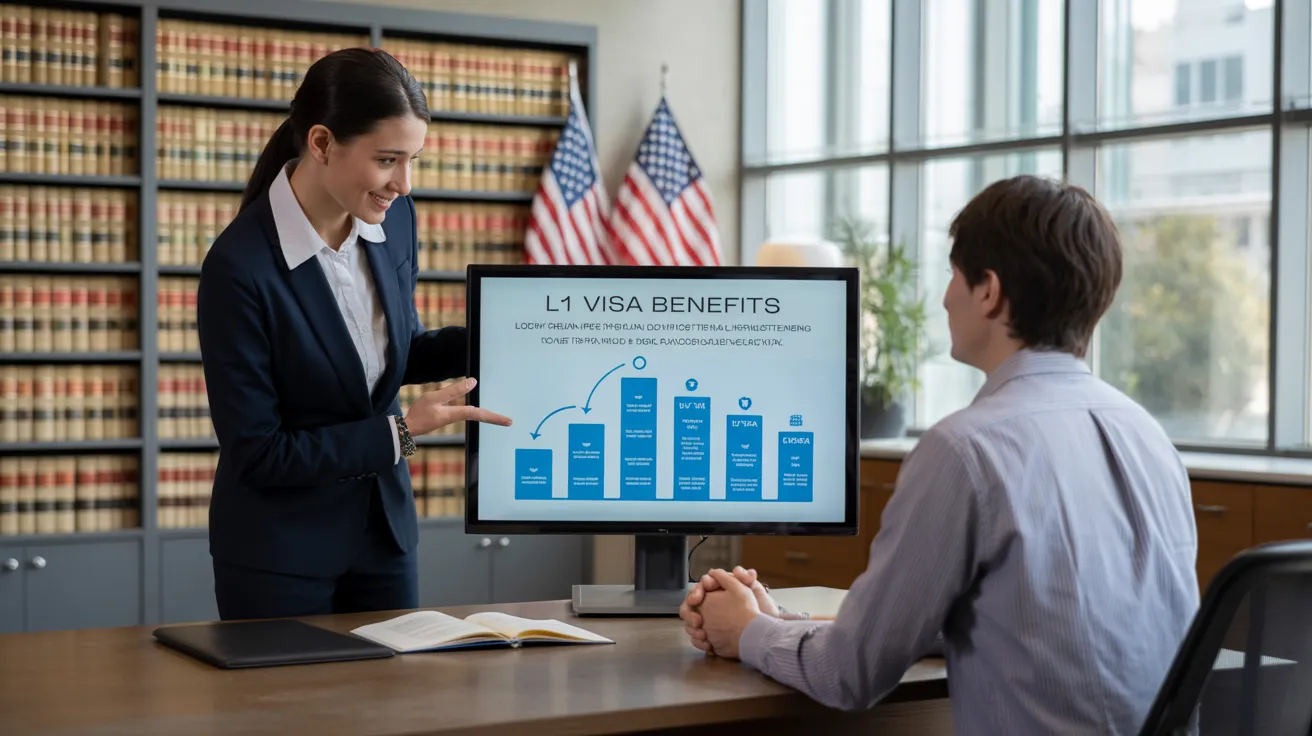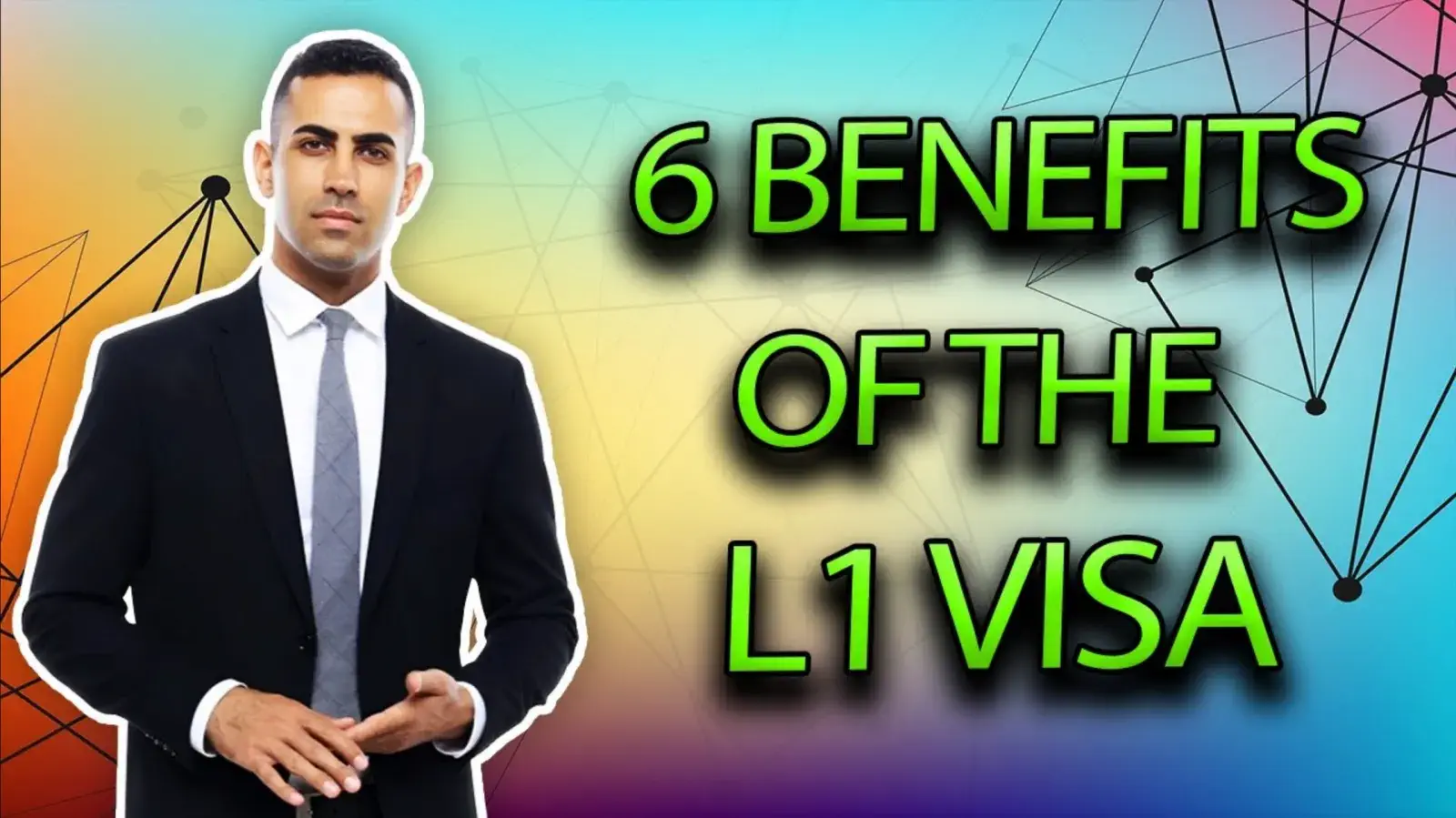Whatever You Required to Understand About the L1 Visa: Benefits, Demands, and More
The L1 Visa functions as a critical tool for multinational firms looking for to transfer workers to the USA, helping with both operational performance and the transfer of specialized knowledge. With distinctive classifications for execs and specialized professionals, this visa provides many advantages, including prospective pathways to long-term residency. Nevertheless, comprehending the eligibility needs and application procedure is important for a successful change. As we analyze the complexities of the L1 Visa, it ends up being clear that steering its intricacies is paramount for organizations intending to take advantage of international skill successfully. What challenges might you run into in the process?
Review of the L1 Visa

Types of L1 Visas

Several kinds of L1 visas cater to the diverse demands of multinational companies looking to transfer staff members to the USA. Both main classifications of L1 visas are L1A and L1B, each designed for particular roles and duties within an organization. L1 Visa.The L1A visa is planned for supervisors and execs. This classification allows companies to move people who hold managerial or executive settings, enabling them to supervise operations in the U.S. This visa is valid for an initial duration of up to three years, with the opportunity of expansions for a total amount of approximately 7 years. The L1A visa is particularly helpful for business seeking to establish a strong leadership visibility in the U.S. market.On the various other hand, the L1B visa is assigned for workers with specialized expertise. This consists of people that possess innovative experience in specific areas, such as proprietary modern technologies or one-of-a-kind procedures within the business. The L1B visa is also valid for a first three-year duration, with extensions offered for as much as five years. This visa group is excellent for firms that need employees with specialized abilities to improve their operations and preserve an affordable side in the U.S.Both L1A and L1B visas permit dual intent, implying that visa holders can make an application for permanent residency while on the visa. Comprehending the differences between these 2 categories is vital for services intending to navigate the complexities of staff member transfers to the United States successfully
Eligibility Needs
To get an L1 visa, both the company and the staff member have to fulfill details eligibility criteria established by united state immigration authorities. The L1 visa is designed for intra-company transferees, enabling international companies to move workers to their united state offices.First, the employer should be a certifying organization, which suggests it has to have a parent business, branch, subsidiary, or affiliate that is working both in the united state and in the international nation. This connection is essential for demonstrating that the worker is being moved within the very same company structure. The company should additionally have actually been doing company for a minimum of one year in both locations.Second, the employee has to have been utilized by the foreign business for a minimum of one constant year within the 3 years coming before the application. This employment must remain in a supervisory, executive, or specialized understanding capability. For L1A visas, which accommodate supervisors and executives, the employee needs to show that they will remain to run in a comparable capability in the U.S. For L1B visas, intended for staff members with specialized knowledge, the private need to possess unique experience that adds significantly to the firm's operations.
Application Process
Maneuvering the application procedure for an L1 visa entails a number of important steps that should be finished properly to assure a successful outcome. The very first step is to figure out the ideal group of the L1 visa: L1A for managers and execs, or L1B for staff members with specialized understanding. This difference is significant, as it affects the documentation required.Once the category is recognized, the united state company must submit Type I-129, Application for a Nonimmigrant Worker. This form must consist of comprehensive info regarding the firm, the staff member's function, and the nature of the work to be executed in the united state Accompanying documents commonly includes evidence of the relationship between the united state and foreign entities, evidence of the staff member's qualifications, and info pertaining to the job offer.After entry, the U.S. Citizenship and Immigration Solutions (USCIS) will assess the petition. If approved, the employee will certainly be alerted, and they can after that obtain the visa at a united state consulate or embassy in their home country. This involves finishing Kind DS-160, the Online Nonimmigrant copyright, and scheduling an interview.During the interview, the applicant needs to present different papers, consisting of the approved Form I-129, evidence of employment, and any extra sustaining evidence. Adhering to the meeting, if the visa is given, the worker will certainly obtain a visa stamp in their ticket, enabling them to enter the U.S. to benefit the sponsoring company. Correct preparation and extensive paperwork are key to navigating this process successfully.
Advantages of the L1 Visa
One of the significant benefits of the L1 visa is its capacity to assist in the transfer of essential personnel from international offices to the USA. This visa is particularly beneficial for multinational companies seeking to preserve consistency in procedures and management across borders. By permitting executives, supervisors, and specialized workers to work in the U.S., organizations can assure that their most necessary ability is available to drive organization objectives.Another significant advantage of the L1 visa is its reasonably straightforward application procedure contrasted to other job visas. Organizations can seek for the L1 visa without the need for a labor qualification, which enhances the recruitment of foreign employees. Moreover, the visa can be approved for a first period of as much as three years, with the opportunity of expansions, assisting in long-term assignments.The L1 visa also offers a course to irreversible residency. Workers on L1A visas (for supervisors and execs) can obtain a Permit after one year, accelerating their modification to permanent standing. This feature is an eye-catching incentive for talented people looking for stability in the U.S. workforce.Additionally, L1 visa holders can bring their instant family members to the united state under L2 condition, permitting partners and children to live and research in the country, boosting the total appeal of this visa category. On the whole, the L1 visa functions as a crucial tool for global businesses, promoting cross-border cooperation and skill wheelchair.
Typical Difficulties
While the L1 visa uses various advantages for international companies and their workers, it is not without its challenges. One notable hurdle is the rigorous paperwork and qualification requirements enforced by the U.S. Citizenship and Migration Services (USCIS) Companies should offer comprehensive evidence of the foreign staff member's qualifications, the nature of business, and the qualifying relationship in between the U.S. and foreign entities. This process can be time-consuming and might require legal experience to browse successfully.Another difficulty is the possibility for analysis throughout the petition process. USCIS police officers may examine the legitimacy of business procedures or the employee's function within the organization. This examination can bring about hold-ups or also denials of the copyright, which can considerably affect the firm's functional strategies and the worker's occupation trajectory.Furthermore, the L1 visa is linked to the sponsoring employer, which implies that task adjustments can make complex the visa status. If an L1 visa holder desires to switch over employers, they need to typically seek a various visa group, which can add intricacy to their migration journey.Lastly, L1 Visa keeping compliance with L1 visa laws is important. Companies must assure that their staff member's function aligns with the first petition and that the organization remains to satisfy the qualification demands. Failure to do so can cause retraction of the visa, impacting both the worker and the organization. These challenges require extensive preparation and ongoing monitoring to ensure a successful L1 visa experience.
Tips for Success
To successfully browse the L1 visa process, precise preparation is critical. Start by extensively recognizing the details needs for the L1 visa category you are getting, whether L1A for managers and execs or L1B for employees with specialized knowledge. Collect all necessary documentation early while doing so, consisting of proof of your work background, organizational framework, and the nature of business operations.Engage legal counsel experienced in migration law to guide you via the ins and outs of the application. An attorney can assist assure that your application is full, precise, and compelling. They can additionally assist in getting ready for prospective ask for evidence (RFEs) by proactively dealing with locations that might raise questions.Additionally, keep clear interaction with your company, who need to provide important assistance for your application. L1 Visa. Validate that they comprehend their obligations, including submitting the needed applications and providing documents that confirms your duty in the organization.Prepare for the visa meeting by practicing solution to usual questions regarding your expert background and the nature of your employment. Demonstrating confidence and clarity can greatly influence the end result of your application
Regularly Asked Concerns
Can Family Members Members Accompany L1 Visa Holders?
Yes, relative can go along with L1 visa owners. Spouses and single children under 21 years of ages are qualified for L2 visas, which allow them to live and study in the United States during the L1 owner's remain.
Just How Lengthy Can L1 Visa Owners Remain In the united state?
L1 visa owners can at first stay in the united state for up to 3 years (L1 Visa Requirements). This period might be extended, enabling a maximum stay of 7 years for L1A visa holders and five years for L1B visa owners
Is the L1 Visa a Dual Intent Visa?

Can L1 Visa Holders Request an Environment-friendly Card?
Yes, L1 visa owners can get a copyright - L1 Visa. The L1 visa sustains double intent, permitting holders to pursue permanent residency while preserving their non-immigrant condition, promoting a smoother changeover to an eco-friendly card
What Occurs if an L1 copyright Is Refuted?
If an L1 copyright is denied, the applicant might get a notice laying out the reasons for denial. L1 Visa Requirements. They can appeal the decision, reapply, or explore alternative visa alternatives depending on their conditions and certifications
Verdict
In summary, the L1 Visa functions as a necessary tool for multinational firms looking for to transfer workers to the USA. Comprehending the distinctions in between L1A and L1B categories, together with the qualification demands and application processes, is vital for effective navigating of this non-immigrant classification. The advantages used, consisting of structured applications and paths to long-term residency, even more improve its appeal. Resolving typical challenges effectively can result in an extra positive result in the copyright process.